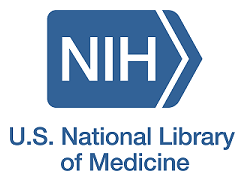
To Your Health: NLM update transcript - CMV and birth defects

To Your Health: NLM update Transcript
CMV and birth defects: 12/12/2016

Image: Courtesy of the Centers for Disease Control
Greetings from the National Library of Medicine and MedlinePlus.gov
Regards to all our listeners!
I'm Rob Logan, Ph.D., senior staff, U.S. National Library of Medicine (NLM).
Here is what's new this week in To Your Health - a consumer health oriented podcast from NLM - that helps you use MedlinePlus to follow up on weekly topics.
In a good example of providing perspective about a current infant health scare, the New York Times recently reported significantly more children are likely to receive lasting birth defects from a lesser known, continuing viral threat than the Zika virus.
The Times reports about 20,000 to 40,000 U.S. infants are born annually with cytomegalovirus (or CMV). Of these, the Times notes about 20 percent, or 8,000 children a year, develop permanent disabilities such as: hearing loss; microcephaly; vision abnormalities; and intellectual deficits. In fact, the Times reports CMV is the most common congenital viral infection and is the leading non-genetic cause of hearing loss among children.
In contrast, the Times explains there have been about 2000 infants born with the Zika virus all over the world, who have experienced significant birth defects, such as microcephaly (which is associated with brain damage). To date, about 900 pregnant women in the continental U.S. have contracted the Zika virus.
The Times notes CMV is transmitted by contact with saliva and urine and often is forwarded through diaper-wearing children to a pregnant mom. CMV also can be spread when day care toddlers share drool-drenched toys and then, spread the virus to a woman, who is pregnant.
CMV can reside in adults for long time and may cause illness after it is dormant. The Times notes CMV often results in flu like symptoms among adults. Similar to Zika, CMV's pressing danger is when a fetus is exposed.
The Times explains there is no vaccine or proven treatment for CMV and patient instruction currently is somewhat uncertain. The Times suggests the vacuum in providing treatment for CMV may be linked to the American College of Obstetricians and Gynecologists' recent decision to not routinely counsel pregnant women about how to avoid CMV.
Instead, the Times reports physicians prefer to focus on health risks for pregnant women where clearer treatment options are available. The Times adds the U.S. Centers for Disease Control and Prevention (the CDC) is funding a pilot study to screen 30,000 newborns in Minnesota for CMV.
Meanwhile, MedlinePlus.gov reports the CMV virus is found worldwide and can be diagnosed with a blood test. The CDC provides a guide to CMV within the 'start here' section of MedlinePlus.gov's CMV infections health topic page.
The Organization of Teratology Information Specialists provides tips about CMV and pregnancy within the 'women' section of MedlinePlus.gov's CMV infections health topic page.
MedlinePlus.gov's CMV infections health topic page also provides links to the latest pertinent journal research articles, which are available in the 'journal articles' section. Links to relevant clinical trials that may be occurring in your area are available within the 'clinical trials' section. You can sign up to receive updates about CMV infections as they become available on MedlinePlus.gov.
To find MedlinePlus.gov's CMV infections health topic page, please type 'CMV infections' in the search box on MedlinePlus.gov's home page, then, click on 'CMV infections (National Library of Medicine).' MedlinePlus.gov also has a health topic page devoted to the Zika virus.
Finally, CMV's continuing prevalence and potential health impact (if spread to a fetus during pregnancy) provides perspective about some other important threats to newborns and identifies additional areas where expectant mothers, parents, and caregivers should take precautions.
Before I go, this reminder... MedlinePlus.gov is authoritative. It's free. We do not accept advertising .... and it is written to help you.
To find MedlinePlus.gov, just type 'MedlinePlus.gov' in any web browser, such as Firefox, Safari, Chrome, or Explorer, on any platform.
We encourage you to use MedlinePlus and please recommend it to your friends. MedlinePlus is available in English and Spanish. Some medical information is available in 48 other languages.
Your comments about this or any of our podcasts are always welcome.
Please email the podcast staff anytime at: NLMDirector@nlm.nih.gov
A written transcript of recent podcasts is available by typing 'To your health' in the search box on MedlinePlus.gov's home page.
The National Library of Medicine is one of 27 institutes and centers within the National Institutes of Health. The National Institutes of Health is part of the U.S. Department of Health and Human Services.
A disclaimer — the information presented in this program should not replace the medical advice of your physician. You should not use this information to diagnose or treat any disease without first consulting with your physician or other health care provider.
It was nice to be with you. Please join us here next week and here's to your health!

































No hay comentarios:
Publicar un comentario